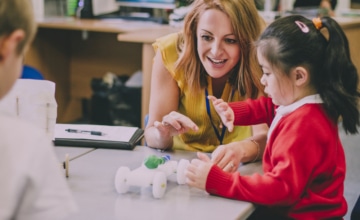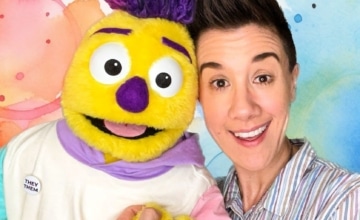
Resource
Problem Solvers: A Free Early STEM Curriculum
Children can learn about math, science and engineering through everyday play. Download our complete preschool and early STEM curriculum, activity guide and songs.
Details
Babies exhibit a natural curiosity that fuels their exploration of the world from the moment they are born. This curiosity is the cornerstone of early learning, driving remarkable brain development during the critical first three years of life.
During this period, they rapidly acquire essential language, motor skills and early literacy, which form the foundation for life-long learning.
During the first three years, babies create over a million neural connections per second, so they need nurturing and support in loving, consistent environments.
However, many families need help accessing quality services and tools for successful early learning. Here’s what we’ve discovered:
By advocating for improved resources and support, we can ensure that every child has the successful early learning foundation they need to thrive.
Just a few ways early learning education can benefit babies and toddlers include:
Only 32 percent of babies receive developmental screenings to identify delays or areas of concern.
Forty-five states do not require minimum levels of training, like a child development associate credential, for early childhood educators of infants and toddlers. In fact, many states require nothing beyond a high school diploma.
Only 37 percent of parents read to their babies every day.
Source: ZERO TO THREE. State of Babies Yearbook: 2022.
I think I was probably wise enough to know that what kind of childhood you had made a difference in who you were. If you made a difference early on, you probably could help someone have a different life than they otherwise would.
Jeree Pawl, ZERO TO THREE Founding Member
Here are some of the ways we support early childhood learning development:

By staying informed, you can confidently nurture early learning, address developmental concerns and create enriching environments that help every child reach their full potential.



Our resources help professionals promote early childhood education and empower children to reach their full potential. Support early childhood education by contributing to our programs or advocating for better early learning opportunities in your community to ensure all children have access to the resources they need.
|
2025 LEARN Conference registration is now open! Join us in Baltimore Oct. 8-9.
|